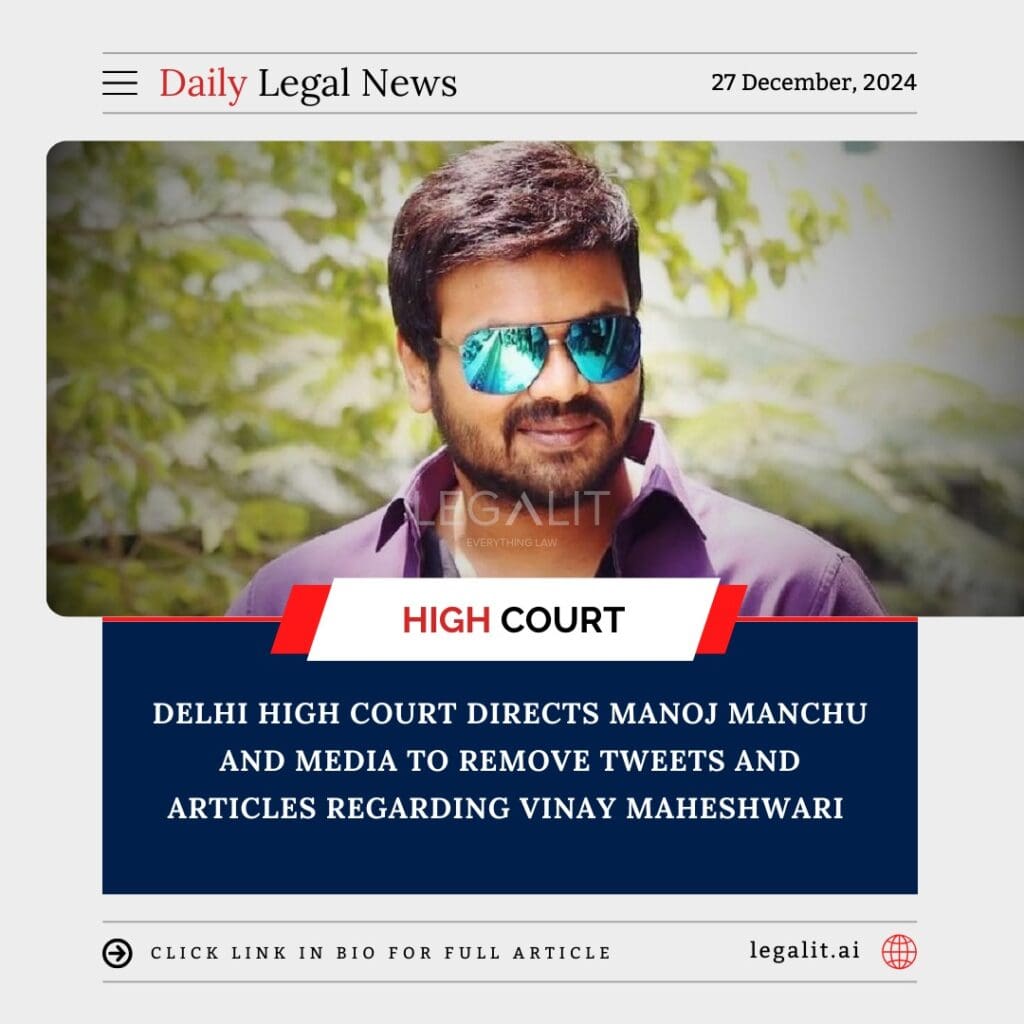
The Delhi High Court has issued an order instructing actor Manoj Manchu and various media outlets to remove tweets and articles related to Vinay Maheshwari. The court’s decision came in response to a legal challenge from Maheshwari, who claimed that the content published by the actor and media outlets was defamatory and false.
Background
Vinay Maheshwari filed a petition seeking the removal of certain tweets and articles that had been published by Manoj Manchu and various media houses, which Maheshwari contended were damaging to his reputation. The content in question was related to a dispute and contained serious allegations that Maheshwari claimed were unsubstantiated.
The petition argued that these publications, which were circulated widely on social media platforms and in news outlets, had caused harm to his reputation and personal dignity. In response to the legal request, the Delhi High Court conducted hearings and examined the matter.
Court’s Rationale
Defamation and Reputational Damage
The court considered the potential damage to Maheshwari’s reputation caused by the content in question. It was found that the allegations made were not substantiated, and the court noted that such statements could harm an individual’s standing in society, especially if the content was spread widely without proper verification.
Protection of Individual Dignity
The Delhi High Court emphasized the importance of protecting individuals from defamatory content that can tarnish their image. The court noted that the right to freedom of expression must be balanced with the need to safeguard one’s reputation, particularly when the allegations made are false or defamatory.
Prompt Action on Public Content
The court also stressed that when defamatory content is published on platforms such as social media and in the media, swift action must be taken to prevent further harm. The judge highlighted that while individuals and entities have the right to express their opinions, it should not come at the cost of spreading misinformation or defamatory claims.
Legal Implications
Social Media and Defamation
This case underscores the increasing importance of managing content published on social media platforms and in digital media. It sets a significant precedent for how individuals can seek relief when their reputations are harmed by unverified or malicious content shared online.
Balancing Freedom of Expression and Reputation
The court’s ruling highlights the delicate balance between the freedom of expression and the protection of an individual’s reputation. It stresses that defamation laws should be enforced when the content being shared is false and damaging.
Conclusion
The Delhi High Court’s order to remove tweets and articles related to Vinay Maheshwari is a reminder of the power of digital content and its potential to harm reputations. By taking swift legal action, the court has reinforced the need for responsible media reporting and the importance of respecting individuals’ dignity in the digital age. This decision serves as a vital precedent in the ongoing battle against online defamation and misinformation.